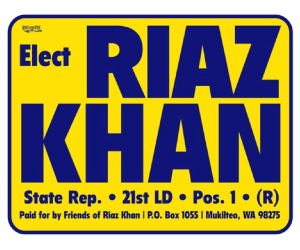LYNNWOOD, Wash., July 25, 2021 – Apple co-founder Steve Wozniak made waves in the tech world a few weeks ago—and likely angered some Apple executives and investors—after the computing pioneer put his full support behind the “right to repair.” In the 9-minute video done through Cameo, a video sharing website and marketplace that allows users to get customized videos and messages or live video chat with celebrities, Wozniak states Apple would not exist if not for “a very open technology world.”
Recently, President Biden issued an executive order which, among other things, called on the Federal Trade Commission to draft up regulations to protect consumer rights to “self-repairs or third-party repairs of their products.” This order followed an FTC report back in May that heavily criticized companies for restricting consumer and third-party repairs. During their July 21 meeting, the FTC unanimously voted to enforce right to repair regulations.
With it being a recurring topic as of late, here’s a quick overview of the right to repair.
First, what is right to repair? Simply put: to be able to fix a purchased product without being forced to go to the manufacturer. Of course, going through the manufacturer for repairs is still available, but right to repair enables owners and third-parties access to pertinent information for said repairs. While it commonly applies to more high tech aspects—it is probably easiest to imagine purchasing a vehicle, but being unable to do an oil change, get new tires or even fix a chip in the windshield without going to a certified dealer.
“I believe that companies inhibit it because it gives the companies power, control over everything,” Wozniak said in the Cameo video.
There are two major motivators for a company to maintain this level of strict control. The first applies to the automobile example: drive up the profitability of repairs. If the company controls all aspects, that is guaranteed money from maintenance and repairs. The lack of competition also means complete control over pricing. It is a large reason why major car dealers lean so heavily on servicing vehicles with them. According to the National Automobile Dealers Association (NADA), on average, new car sales—including profit from financing, add-ons and insurance products—account for less than 26% of a dealer’s total gross profit. Used cars account for about 25%. The remaining 49.6%? The service department.
This concern about auto repairs is what drove Massachusetts voters to overwhelmingly pass a right to repair law on automobiles in 2012. This law eventually prompted automakers to comply in all 50 states. Over 2.33 million voters, or 86%, said yes to Question 1: “Should auto makers be required to give owners access to the same diagnostic and repair information that dealers and authorized repair facilities have?” The state also passed an amendment to the law in 2020 with 2.55 million votes (75%) that closed a loophole some companies were using by requiring manufacturers to give access to telematics—wireless data that is typically transmitted to manufacturer servers.
The second benefit of restricting repairs for a company is that it often forces consumers to purchase a new product when it breaks, regardless of the component that broke. If repairs are perceived to be too costly or time consuming, consumers will opt to buy a new one. This ties into something often called “throwaway culture,” which even the Pope has spoken out against. This gets particularly malicious when planned obsolescence comes into play—where products are specifically intended to have artificially shortened life cycles. This is often accomplished by designing products to wear out faster, by making minor, often unneeded changes to new models, or pushing software updates that slow down older hardware. Apple has been accused of the latter several times.
There are plenty of tech companies who have lobbied against right to repair bills, but Apple and—believe it or not—John Deere are the consistent contenders. Modern farming is incredibly high tech and John Deere has fought hard to keep their death grip on their market. The company went as far as to say farmers don’t own the tractors, but rather purchase “an implied license for the life of the vehicle to operate the vehicle.”
There has undoubtedly been a calculated, gradual shift on the idea of fixing things yourself. But even going beyond the “just buy a new one” mentality, do you really want a company to have complete control over something YOU purchased? And even if that thought isn’t too alarming, what do you think the company cares about more: the consumer or their profit margin?



















